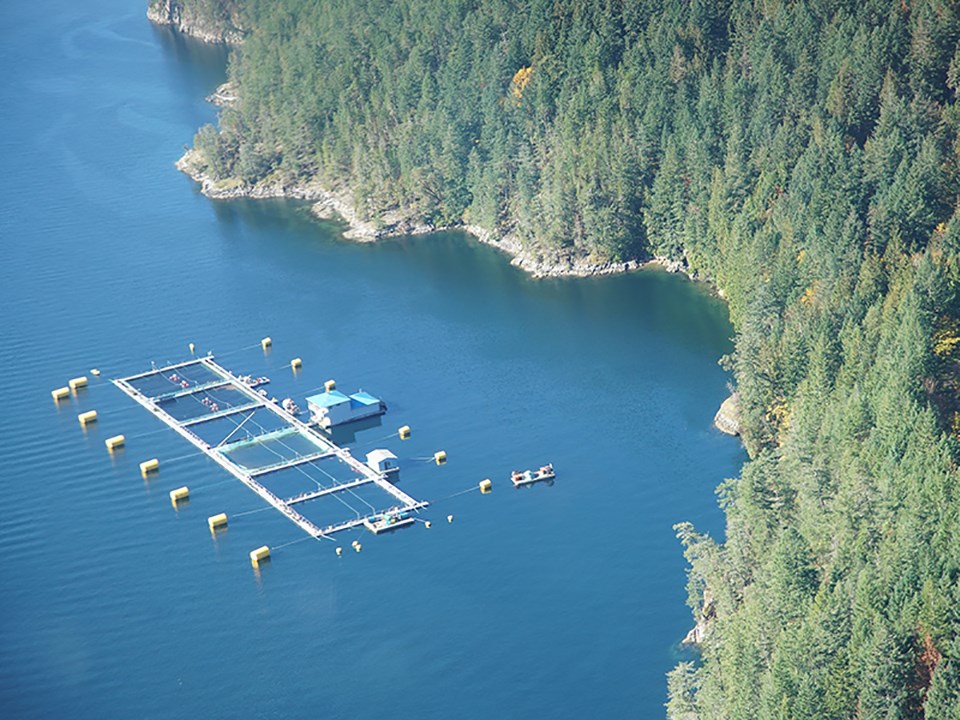In December 2020, then federal minister of fisheries and oceans Bernadette Jordan, made an unexpected announcement that 19 open-net fish farms in the Discovery Islands archipelago would be shut down by June 30 2022.
Fish farm operations in the area have been blamed by salmon biologists and wild salmon advocates for spreading sea lice (and other pollutants) to wild salmon stocks that migrate through the strait every year. This contentious issue has gained a lot of public attention, and the federal government’s, over concern of the health of wild salmon stocks.
Groups such as Watershed Watch Salmon Society and prominent scientists and activists such as field biologist Alexandra Morton have been rallying against fish farms for years, and news of the closure was a relief for them. However, in April 2022, a judge quashed the government’s decision to shut down the farms, for not following proper procedure with industry.
Current fisheries and oceans minister Joyce Murray had said her ministry would consult with industry until a December 2022 deadline and a final decision would be made in January 2023.
Watershed Watch fish biologist Stan Proboszcz suspects announcing the potential closure of the Discovery Island fish farms is a tough decision.
“On one hand, there are many British Columbians who value wild salmon, who will be mad if they decide to renew fish farming licenses, and industry will be mad if the farms are shut down,” said Proboszcz.
He believes that is why the announcement hasn’t been made yet, even though it’s now past the January 2023 deadline. Currently the fish farm operations have been temporarily suspended, but that could change, depending on Murray’s decision.
“Unfortunately, this decision will be political and not based on science,” said Proboszcz. “If we can get rid of this one threat by removing the farms then the problem [sea lice] would be gone and it would provide relief to juvenile salmon who are most susceptible [to sea lice]. Keeping that migration route clear from fish farms would be a benefit.”
The Department of Fisheries and Oceans (DFO) released a report last month that claims “fish farms aren’t solely to blame for the growing prevalence of sea lice among wild salmon along the BC coast.”
However, most of that information was provided by fish farm operators, and numerous studies state otherwise. In the same report, DFO stated that since 2013, there has been an uptick in sea lice in the Discovery Islands area.
Proboszcz thinks it’s strange that the DFO released the report right when the fisheries minister was supposed to make her final decision whether or not to shut down the farms.
“We know through filing ATIPs [Access to Information and Privacy] that the DFO sat on this report for five months and released it a week or two before minister Murray’s announcement to the public,” said Proboszcz.
The Discovery Island archipelago is a popular destination for kayakers and includes Quadra and Cortes islands, and a slew of little islands between Campbell River and North Central Vancouver Island. Proboszcz believes the marine ecosystem in the area could go back to being robust and healthy but that it will take awhile.
Murray’s office did respond to enquiries regarding the Discovery Islands fish farm announcement, but issued the following statement:
“Protecting and rebuilding wild Pacific salmon populations is our government’s priority. We have undertaken extensive consultations with Indigenous communities, scientists, industry, and British Columbians. Considering these significant consultations and the volume of submissions, a decision on licensing in the Discovery Islands will be made in due course.”




